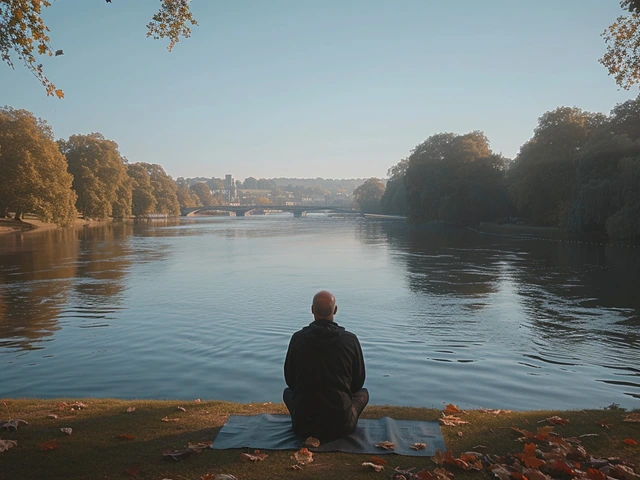Science and Health: Evidence-Based Tips You Can Use
Science helps you cut through health fads and pick what actually works. This page collects simple, practical tips backed by research so you can try them right away. I focus on things you can test at home: stress tools, movement, food, sleep, and small habits that add up. No long theories, just clear actions and why they work.
Stress changes how your brain and body behave. Short daily meditation improves focus and lowers stress hormones. Try three minutes of focused breathing: inhale four, hold two, exhale six. Do it when you wake up or during a tough moment. It resets your nervous system and helps you make better decisions.
Recovery matters as much as training. Sports massage and targeted soft tissue work speed healing, reduce soreness, and improve mobility. If you exercise regularly, add gentle self-massage or foam rolling two times a week. Short sessions after workouts ease tight spots and cut down on injury risk.
Food and Gut Health
Your gut impacts energy, mood, and immunity. Small changes help: add a daily serving of fermented food like yogurt or kefir, eat more fiber from vegetables and whole grains, and avoid heavy meals late at night. These steps support a balanced microbiome and better digestion without drastic diets.
Smart snacking keeps blood sugar steady and reduces cravings. Choose snacks with protein and fiber such as nuts, fruit with nut butter, or Greek yogurt. These options help with energy and weight goals by keeping you full longer and reducing impulsive eating.
Mental Wellness and Creativity
Creative activities work as therapy for normal stress. Ten minutes of sketching, listening to music you love, or moving to a short dance track can lower anxiety and shift your mood. These quick creative breaks change perspective and make hard problems easier to handle.
Gratitude and positive thinking are real tools you can use. Write one sentence of gratitude every night for two weeks and notice small mood improvements. Positive habits nudge your brain toward calmer responses and better sleep over time.
Keep goals tiny and repeatable. Set micro habits like a two minute meditation after brushing teeth, a fifteen minute walk after lunch, or one vegetable at every dinner. Track these daily for a fortnight and you will build momentum without feeling overwhelmed.
Pick one article here that matches your need and try one small change this week. Test it, note how you feel, and keep what helps. Science gets useful when you test ideas in real life and choose the ones that fit your routine.
If you want specific topics, start with mindfulness apps for quick focus boosts, turmeric for inflammation support, or gut health basics for digestion. For athletes, focus on recovery tools like targeted massage, sleep routines, and nutrition timing. For stress and anxiety, combine short breathing, creative breaks, and better sleep habits. Try one change at a time and track progress with notes or a simple app. Small, steady steps add up daily.
The Science Behind Stress Reduction: What You Need to Know
Hey there, stress-busters! Let's dive right into the science behind kicking stress to the curb. So, you know how your body gets all jittery when stressed? That's your body's fight-or-flight response, and it's not always our best friend. But don't fret! With techniques like mindfulness, deep-breathing, and even a good belly-laugh, we can trick our brains into chilling out. Simple, huh? Now, let's all take a deep breath and laugh that stress away!
View More





